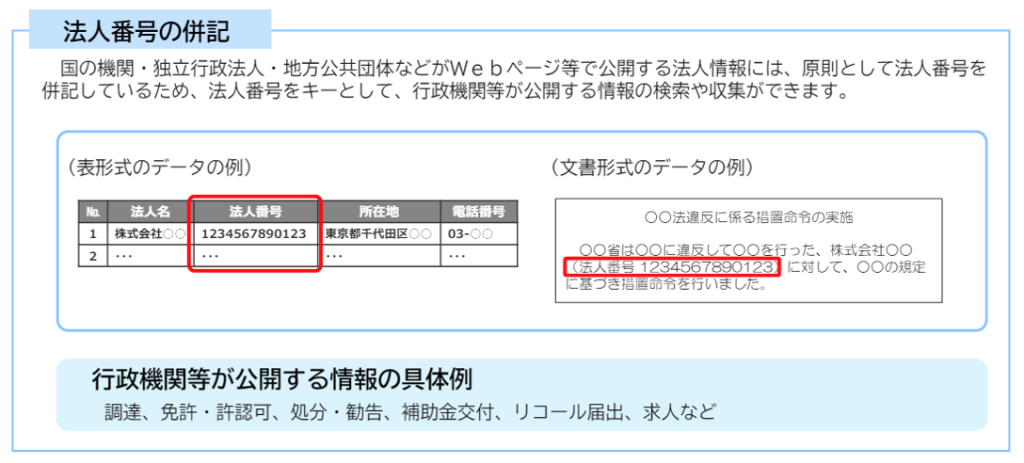Original Article: 【取り急ぎアドバイスをお願いします】法人が買主、または売主の場合に必要な注意点について教えてください
Although in our work, individual buyers and sellers are more common, but there are cases in which the seller, the buyer, or both are corporations.
The ratio of individual is higher for real estate which use is a residence, and more corporate transactions are made for commercial real estate such as an office building, a factory, and a warehouse.
In the case of corporate transactions, it is necessary to understand the differences from individual transactions when explaining them.
Points requiring special attention include the following:
- Confirmation of the existence of the corporation
- Trustworthiness as a legal entity
- Authority of the party with whom the contract is concluded (usually the managing director)
- Confirmation of clauses that are not usually included in private sales
- Arrangement of penalties
- Differences in tax and accounting treatment
In this issue, we would like to explain some of the key points required for corporate transactions.
Verify the Existence of a Corporation
A legal entity is an organization or association that has rights and obligations within the scope of the purposes set forth in its basic articles of incorporation (articles of incorporation, etc.).
It differs from a natural person (human being) in that it is recognized as having the capacity to exercise rights in accordance with the provisions of the law.
Corporations are classified into various types, such as joint stock companies and limited liability companies, depending on the purpose and nature of their establishment.
An organization or association recognized as a corporation can hold property and incur debts within the scope of its purpose.
If the seller or buyer is a corporation, the name of the corporation, its address, and the name of the representative director will be written in the signature line of documents related to the real estate sales contract, and a representative seal (a personal seal for people) or a corporate seal will be affixed.
Although it is not a problem for a corporation to be a party to a sales contract in this way, as mentioned above, it has the rights and obligations of a corporation only when it is recognized by law.
Therefore, it is important to confirm whether or not it has juridical personality and whether or not it really exists.
The simplest way to check is to use the “Corporation Number Publication Site” provided by the National Tax Agency.

You can search by corporation name, location, or corporation number, and check the trade name or name, head office or principal office location, and status (change information history) of the subject company.
Commercial Register Search
Once the existence of the corporation is confirmed, the commercial register (commercial registration certificate) is obtained.
We have seen some people mistakenly believe that they have confirmed the actual status by checking the corporate profile on the website operated by the corporation, but online information can be used to hide unfavorable information.
Therefore, it is essential to conduct an investigation by obtaining the commercial register.
Since the commercial register of a listed company contains dozens of pages, it is difficult to explain all of it.
Here, we will explain the basic items to be checked.
The trade name section contains the items necessary to identify the company.
Information such as the company name, head office address, date of incorporation, and method of public notice are listed.
The following points are noted in the trade name section of the corporate investigation.
A. Corporate Identification Number
The corporate number is a 13-digit number assigned by the National Tax Agency to corporations, including joint stock companies.
The corporate number consists of a 12-digit base number and a one-digit number for inspection. In principle, sole proprietorships, partnerships under the Civil Code, and limited liability partnerships are exempt from the designation.
The corporate number can be confirmed when using the aforementioned corporate number publication website. Once the corporate number is known, the history of administrative actions and recommendations can be confirmed via the websites of the relevant government agencies.

B. Manager
The name and address of the controlling person of the corporation will be listed.
If the company has a sales office or branch office, information about the manager will also be included.
Although referred to as a manager for the sake of convenience, the authority of a manager under the Companies Act is defined in Article 11 of the Companies Act as “the authority to perform any judicial or extrajudicial act relating to the business of the corporation on behalf of the corporation.”
Although the position of a manager is that of a servant employed by a corporation, the aforementioned strong authority is so strong that it rarely exists in practice.
In practice, we investigate representative directors as defined in Article 349 of the Companies Act and officers (directors, accounting counselors, and auditors) as defined in Article 329 of the Companies Act.
The names and addresses of these officers are listed in the commercial register, so it may be good idea to search the Internet for negative information.
C. Company History
In this section, we will focus on the history of trade name and name changes.
Although there is no problem with changing the trade name, it requires time, effort, and cost to create new signboards, business cards, seals, company letterhead, etc., as well as effort to be remembered by business partners and customers.
There are good reasons for changing a business name.
If the reason is positive, such as the business has grown so large that the old trade name is no longer appropriate for the current situation, it is a good idea.
If you search under the old trade name, there is a high possibility that you will find negative information, such as recommendations or disciplinary actions.
Although “changing” a trade name does not necessarily mean that the company is suspicious, it is important to keep this in mind.
D. Method of Public Notice
Public notice is the act of a company of informing its shareholders and creditors of certain matters.
When a company is established, it is necessary to register the “method of public notice.” If you browse the commercial register, you will see a statement such as “by electronic public notice.
Public notices are broadly classified into the following two types:
- Financial Statements
Article 440 of the Companies Act requires joint stock companies to publish a balance sheet without delay after the conclusion of the ordinary general meeting of shareholders (for large corporations, a profit and loss statement is required in addition to the balance sheet). - Legal Notices
Public notice in the Official Gazette is required for matters such as corporate mergers, capital reductions, and dissolutions that have a material impact on shareholders, creditors, and others.
These are obligations that a stock company must fulfill regardless of the size of the corporation’s business.
In the past, it was often stated that “public notices shall be published in the official gazette” because it was cheaper than publishing in newspapers, but nowadays, it is often stated that “electronic public notices shall be used”.
In many cases, a dedicated page is set up on the company’s website, and the URL of the electronic public notice can be found in the commercial register.
E. Date of Establishment
The date of incorporation of a corporation is the date it is registered.
Often confused with establishment of business, establishment is the date when the business was conducted by an individual before the corporation was established.
For example, a long-established business that is said to have been established more than 300 years ago relies on lore and folklore as its basis.
Since it is difficult to objectively verify their authenticity, they do not fall under Article 2, Paragraph 1, Item 20 of the Unfair Competition Prevention Law (misrepresentation of quality) even if specific evidence cannot be shown.
However, it does not protect those that are not based on actual folklore, but are created independently by combining folklore, or those that are propagated without any basis.
As is the case with establishment, Japanese people tend to place their trust in long-established businesses with a long date of establishment.
Therefore, there are many cases of abuse of consumer confidence.
Most of the items on the commercial register can be changed (trade name, head office, purpose, capital, directors, etc.), but the date of incorporation cannot be changed.
If the date of incorporation is old, it is easy to assume that the company has been in business for a long period of time, but there are corporations that have ceased business activities and have no substance.
If such a corporation is purchased at a discount, it can appeal the length of its business performance based on the date of incorporation.
Such purchases of dormant corporations are a typical method of scheming fraudulent business.
In order to spot them, it is important to check for any unnatural movements by focusing on changeable items, i.e., trade name, head office, purpose, capital, directors, etc.
F. Objectives
The commercial register lists the purpose of the company.
Caution should be exercised if these purposes have been changed many times or if there is a mixture of many different purposes that do not correspond to the actual situation.
You are free to choose whether or not to engage in any of the businesses listed in the “purpose section” of the commercial register, and there are no restrictions on the number of such businesses.
It is common for a company to list any purpose that comes to mind at the time of incorporation as a possible future venture.
This is because the purpose column of the commercial register is checked when conducting business that requires permits, licenses, or notifications.
For example, even if “real estate sales, brokerage, and management” is registered in the Purpose column, it does not necessarily mean that the company has obtained a real estate transaction license.
This is because the purpose column can be filled in even if the license has not been obtained.
If necessary, contact the relevant department of the ministry or prefecture in charge to inquire whether or not a license has been obtained.
Authority of the Contracting Party
In principle, only the representative director or “an agent authorized by the representative director to act on his/her behalf” has the authority to enter into a corporate contract.
Therefore, a senior managing director, managing director, etc., who do not have the authority to represent the company, cannot conclude a contract simply by virtue of their titles (even if they are directors).
Article 349 of the Companies Act stipulates that a director represents the company.
However, this does not apply if a representative director or a person representing the company is separately appointed.
The commercial register lists the address and name of the representative director and the names of the other directors and auditors.
In the corporate investigation, confirm the names of directors and officers as well as the reasons for their registration, such as appointment, retirement, resignation, or dismissal.
In general, the term of office of directors and auditors of a stock company is two years and four years, respectively, but the term can be extended up to 10 years by the articles of incorporation.
Normally, a director is considered to have resigned when his/her term of office has expired, or when he/she has voluntarily resigned his/her position. However, in some cases, a resignation or dismissal may also be registered as resignation for the sake of publicity.
Regardless of the description, be careful when directors are frequently replaced.
There is a high possibility that the management of the company is unstable, that there is civil unrest among the directors, or that the representative director is abusing his or her authority.
While it is natural to negotiate and sign contracts with those who have authority, a company with problems may change parties before settlement is reached, and this may cause problems.
This is an item that should be kept in check as part of a corporate investigation.
Use a Credit Reporting Agency if Necessary
If necessary, use a credit check firm.
For a single real estate transaction, you can achieve your goal by checking the existence of the legal entity and examining the commercial registry as described above, in addition to searching websites and the Internet.
However, if you want to know exactly how much a company can pay and how much it owes, a report from a credit research company will be useful.
The cost of a credit investigation varies depending on the investigation company and the size of the target company’s business, but even the major credit investigation company, Teikoku Databank, charges between 15,000 yen and 24,000 yen (per company).
Since this service can confirm information that cannot be obtained through normal investigations (e.g., details of past defaults), consider using this service if necessary.
Summary
In this issue, we have explained the credit checks that are necessary when doing business with a corporation.
Since this blog is limited to the investigation method of corporate credit, it does not include the check for “anti-companies.”
Some people think that because the contract partner is a corporation, they can rest easy without understanding the actual situation.
It is not uncommon for a company to be in deep trouble even if it appears to be in good shape from the outside.
Even if there is no problem in the pre-contract investigation, there is a possibility that the business condition will deteriorate so rapidly that settlement will not be possible.
Particular attention is necessary for the dealings in which the period until settlement is prolonged.
In the mediation business in which a corporation is a contracting party, more careful handling is required than in individual transactions, including not only confirmation of legal procedures and documents, but also legal scrutiny of contract contents, confirmation of tax and accounting aspects, and thorough credit checks as explained so far.

For additional information or any questions please contact us here
Email: info@remax-apex.com

